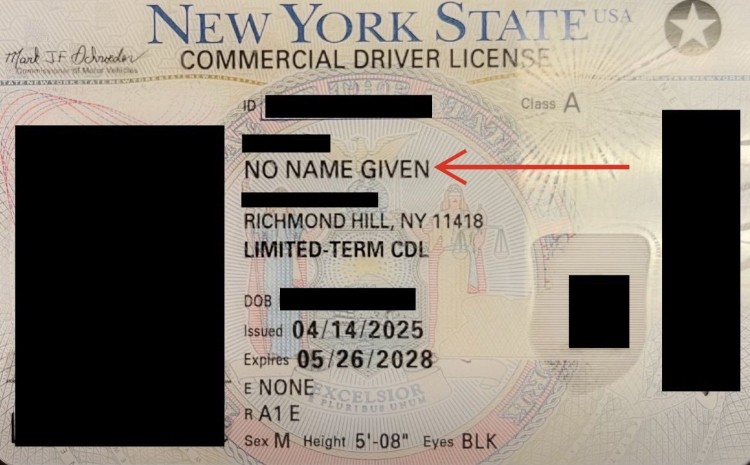The recent Operation Guardian sweep led by Governor Stitt and the Oklahoma Highway Patrol highlights intensifying state-level scrutiny of immigrant documentation, particularly targeting commercial drivers with licenses showing “No Name Given” issued by sanctuary states like New York. This incident demonstrates how FNU/LNU naming issues can expose law-abiding immigrants, many of whom are skilled professionals to suspicion and enforcement actions, even when their status and intentions are legitimate.

Oklahoma’s Operation Guardian
Governor Stitt’s collaboration with ICE resulted in the apprehension of more than 125 individuals from various countries, drawing attention to cases where commercial drivers possessed New York licenses lacking standard name fields. Oklahoma officials argue these drivers may present safety risks, especially when operating heavy vehicles without fully verified identities.
Why FNU/LNU Is a Real and Growing Concern?
While the outrage focuses on public safety and illegal entry, what’s often misunderstood is that identity issues like “No Name Given,” FNU, or LNU can affect a wide spectrum of immigrants, not just those without lawful status. Physicians, engineers, and professors sometimes inherit these anomalies via errors in their home country’s documentation. Yet recent events show that even technical errors or legacy data can pose risks to employment eligibility, travel, and legal compliance.
How Individuals Can Fix Their Documentation?
Proactive immigrants can resolve these issues by petitioning a local state court for a name clarification order, then update their identity documents, including passports, driver’s licenses, and work authorization records. While updating a foreign passport can be complex, recent enforcement sweeps and rhetoric from leaders like Governor Stitt make early action essential to avoid future trouble.
Employer Risks: I-9 and E-Verify Compliance
Employers must verify identity and work authorization using documents that align with government standards. Discrepancies due to FNU/LNU, now further stigmatized by enforcement campaigns could delay onboarding or trigger compliance actions during ICE audits, especially in states taking a hardline approach like Oklahoma. Preventative action helps employees and employers stay ahead of new restrictions.
Governor Stitt’s Operation Guardian shows that unresolved FNU/LNU issues can now present not just technical risks, but enforcement and reputational risks making corrective action on identity documents an urgent priority for immigrants and their employers.


